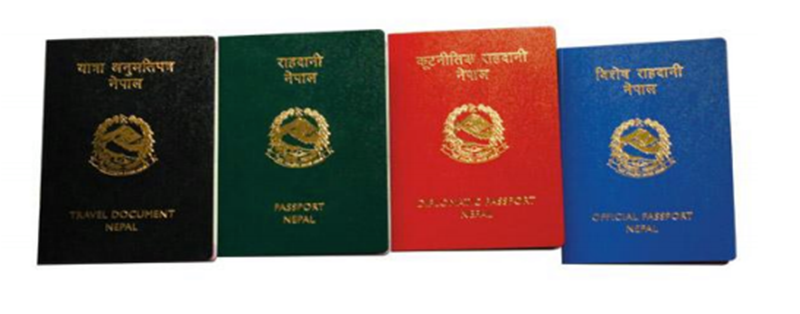Diplomatic passport provisions eased
Kathmandu, September 25
The International Relations Committee of the House of Representatives has relaxed provisions related to the use of diplomatic passports by lawmakers, government officials and members of constitutional bodies.
A report tabled by the committee on the Passport Bill in the HoR today has authorised the aforementioned individuals to carry diplomatic passports until they remain in office.
The provisions are applicable for officials visiting abroad as per the decision of the federal and provincial governments, local levels, federal Parliament, provincial assemblies and constitutional bodies, or officials visiting abroad at the invitation of international institutions, foreign governments and semi-government organisations, according to the report.
The committee’s member Deepak Prakash Bhatta said a related regulation to be drafted will make the provisions more clear and specific.
The report has recommended using the term “for government related work or special work” in place of “government related work” in Section 6 of the bill, which means lawmakers can also use diplomatic passports for abroad visit for personal purposes. “But they should update the authorities concerned about the purpose of visit,” Bhatta told The Himalayan Times.
The report has also advised to use the term “if decided or recommended” in place of “if the decision to nominate is forwarded in written form” in the same section.
In section 14 (1) of the bill, the report has recommended to include “as per the procedure fixed for the use of diplomatic and special passport” instead of “as per the decision of the government, holders of diplomatic or special passport should use such passport only for travelling abroad for government related work”.
Section 12 (C) of the report has recommended using “if stated in written by the authority concerned about blacklisting due to failure to repay bank loans or if facing trial in related cases or convicted by the court in same cases” in place of “if black-listed as per the laws for the failure to repay bank loans”.
Section 32 of the bill has recommended replacing “this section does not affect resulting consequence” by “in relation to resulting consequence this section will not affect initiation of legal action.”
The bill has proposed a jail term of one to three years or a fine not exceeding Rs 500,000 or both for passport forgery and forgery of documents to acquire passport.
Under the existing law, a person found guilty of passport forgery faces a jail term of only one year or a fine of Rs 500, or both.
The new bill states that if anyone obtains or tries to obtain a passport submitting fake details, or goes to a foreign country without passport or permission of the government, or does not follow the government’s directives, or uses the passport for purpose other than it was acquired, or changes the photo and details on a passport, then such a person will be liable to a jail term of one to three years and a fine not exceeding Rs 500,000, or both. For other passport related crimes, the bill proposes a jail term of six months to one year and a fine not exceeding Rs 100,000.






